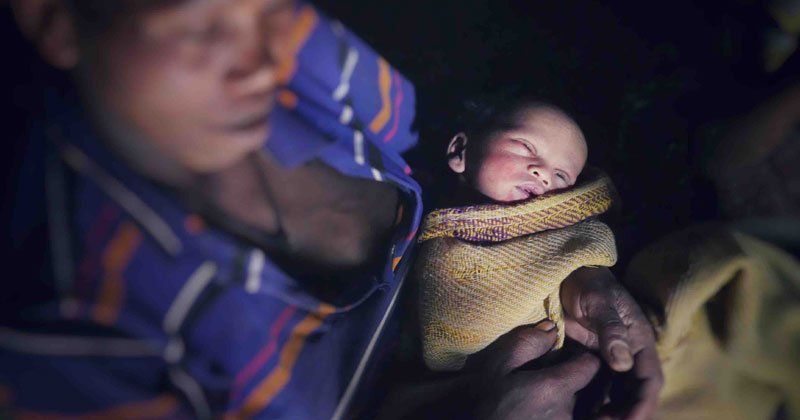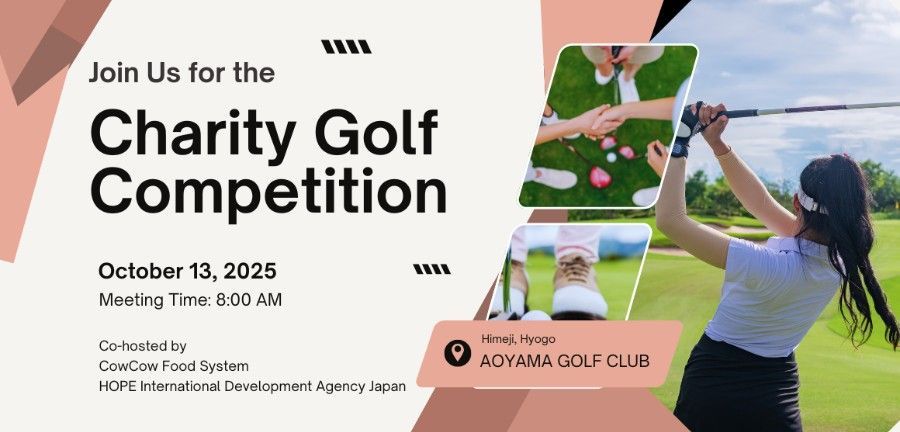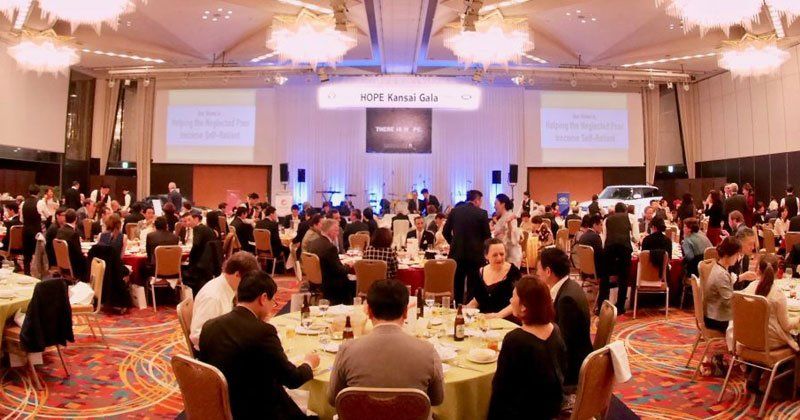The significance of 5.8 seconds
Relecting on the statistic of "5.8 seconds" on World Health Day
One death every 5.8 seconds...
In 2018, UNICEF published a report that claimed 5.4 million children die before the age of five in a year. This is about 15,000 deaths a day, or one death every 5.8 seconds. While infant mortality has been greatly improved in the past 25 years, many of the causes of the death of children under the age of 5 are said to be preventable if safe water and vaccines are made available and proper hygiene and sanitation are practiced.
April 7th is World Health Day
as designated by the United Nations. I would like to take this opportunity to look at the reality of the world once again and introduce HOPE's approach in tackling this problem.
HOPE intervention site in Ethiopia
Ethiopia is one of several countries in which HOPE is active in. Although it currently enjoys rapid economic growth, the growing gap between the rich and the poor has become a major social issue.
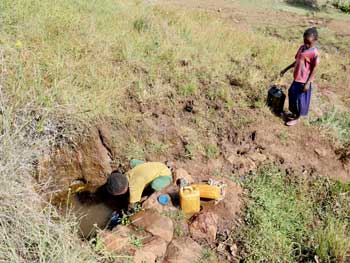
In urban areas, more than 95% of families have access to clean water, but in rural areas, almost 45% of the population, or about 39 million people use water that is at risk of contamination. There are many rural communities where toilet usage is not practiced and one in three people (32.9%) still defecate outdoors in the open. Even if they get sick due to poor sanitation, there are few medical clinics with adequate medical supplies and facilities in rural areas. The sad reality is that many lives that can be saved through simple medical treatments are lost.
In fact, most children’s deaths before the age of five are said to be preventable or treatable, such as complications at birth, pneumonia, diarrhea, and malaria.
Unlike in Japan where you can easily access medical services, in rural areas it is most crucial to follow proper health and hygiene practices to prevent illnesses.
What does HOPE do?
HOPE builds clean water systems to solve this problem. Safe drinking water is essential in preventing diarrhea and other illnesses. However, if your hands and cups are dirty, and you do not have a clean restroom, you can not prevent diseases despite having access to clean water, unless you adopt the regular habit of washing your hands.
Therefore, HOPE also focuses on communicating proper health and hygiene knowledge alongside building water systems.
1. Hygiene and sanitation education for mothers:
Small children are especially at risk from water-borne diseases. However, as it is difficult for HOPE to teach children on a daily basis, we provide health care knowledge to mothers who raise children.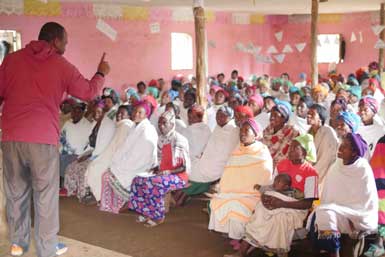
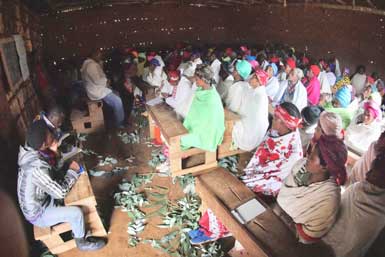
2. Door-to-door visits:
An important component of HOPE’s program are house-to-house visits which are conducted to follow-up on whether the knowledge gained through the educational sessions on hygiene and sanitation are understood and practiced. If individual families have problems implementing this knowledge, our staff can assist them on site.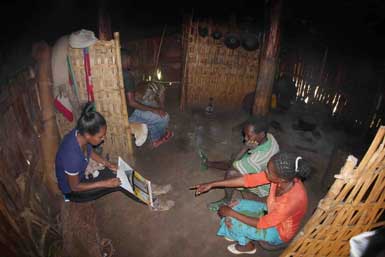
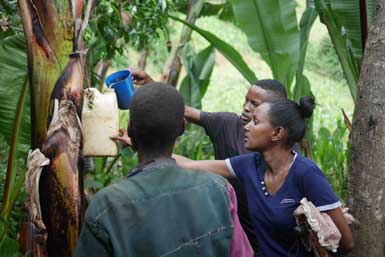
3. Installation of household toilets:
HOPE promotes the use of household toilets that can be easily built with local materials. The photograph shows a new toilet built by the Muntso's family. Before HOPE, this family did not have a toilet and instead they used the bamboo grove at the end of the field.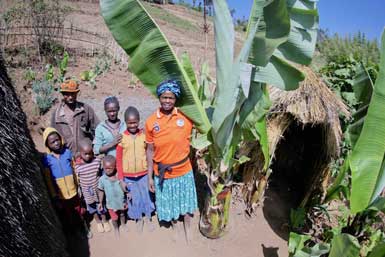
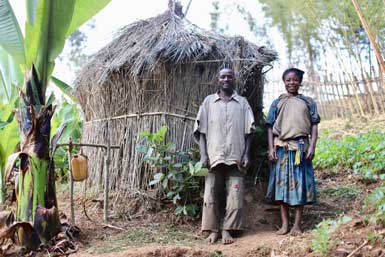
4. Dishware drying rack:
We also educate communities on the importance of using drying racks for dishes and kitchen utensils which can be built with readily available local materials. The first photo is of Ms. Eino and Mr. Asfo who have built a drying rack recommended by HOPE.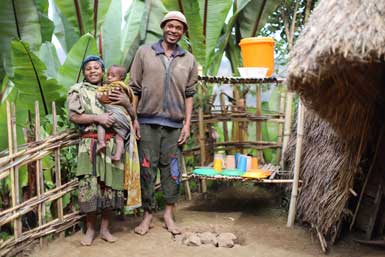
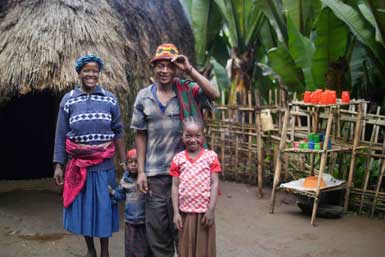
5. Hand washing instructions:
It is important to wash your hands as Ethiopians have a culture of eating with their hands. We conduct hand-washing classes in cooperation with JICA’s Japan Overseas Cooperation Volunteers program, in order to communicate the importance of hand-washing especially to children. We are also working on reinforcing hand washing habits by writing a hand washing song in the local tribal language.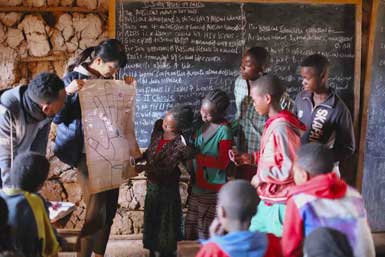
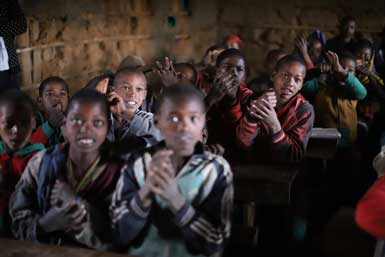
After HOPE leaves a project site
HOPE staff cannot be at an intervention site forever. Therefore, collaborating with local clinics is important to ensure that the hygiene and sanitation knowledge will continue to be communicated even beyond the two-year life of a project. We have built a collaborative system to share information and have staff from health clinics participate in training.
Although the clinics in remote areas may not be able to provide adequate medical treatment due to lack of facilities and medicine, the World Health Organization is aiming for “Universal Health Coverage” (UHC) where the goal is for everyone to have access to health care. Coincidentally, and in concurrence with this objective, the Kashaso health clinic (near one of HOPE’s sites) is adding more medical services from this month of April and has been provided with additional medical supplies and medical devices necessary for child delivery and for the treatment of illnesses including water-borne diseases.
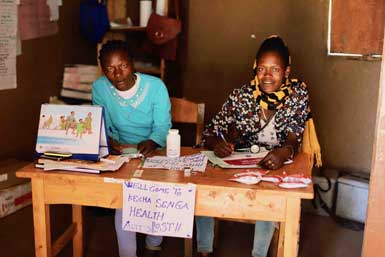
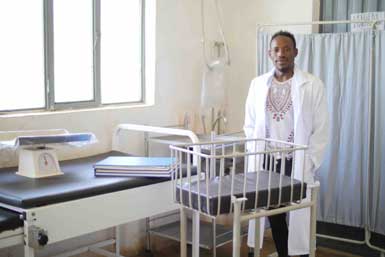
Many people are working hard every day to improve this statistic of a child’s death every 5.8 seconds in this remote village. HOPE is helping to build a foundation so the residents can continue to tackle these problems with the local administration even after the end of the project.

